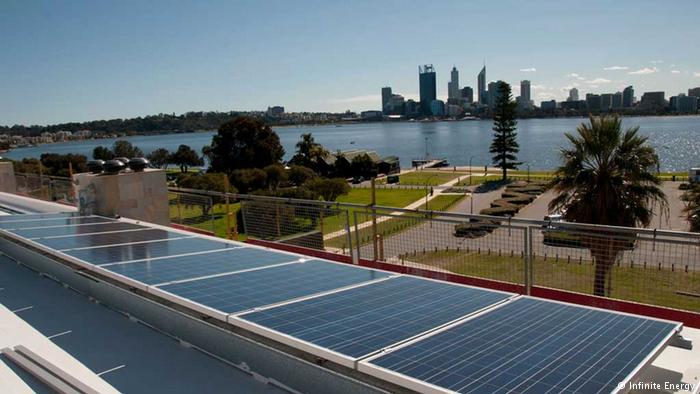The West Australian published reports today that WA Energy Minister and Treasurer Ben Wyatt “has quietly shelved plans” to introduce FRC. While he has denied the claims, he did question whether FRC “has delivered the benefits that it is intended to deliver.”
The newspaper reports that the decision to back away from FRC is based on opposition from unions, in light of state’s deficit, and questions as to whether it has delivered lower prices for consumers elsewhere in Australia.
Last week, Wyatt attended the inauguration of the 20 MW Emu Downs solar farm. It is co-located with the 80 MW wind farm of the same name, 200 kilometres north of Perth. Speaking at the event, he said that the state’s mid-west of is “fast emerging as the epicentre for renewable energy projects in Western Australia.
“The McGowan Labor Government is committed to ensuring that Synergy meets its 2020 renewable energy commitments, and we will do so in such a way that contributes to repairing the state of the Budget.”
Synergy will purchase the Emu Downs’ power output through 2030 from the project’s owner gas pipeline developer and operator APA.
While Wyatt pointed to large scale renewable projects under development in the state, including the 130 MW Badgingarra wind farm, WA is missing out on much of the large-scale renewables boom that is underway in states such as Queensland, Victoria, New South Wales and South Australia.
In its latest Renewable Energy Index, Green Energy Markets reported that only 98 jobs have been created in the large-scale renewable sector in WA. This compares to over 6,400 in Queensland, almost 5,000 in Victoria, and 3,580 in NSW.
“Large scale renewable energy development is particularly difficult in WA given the state government owned Synergy’s dominant position on both the retail and generation sides of the market,” Aidan Jenkins, the Managing Director of Perth-based Infinite Energy told pv magazine Australia. “The other factor is WA’s capacity market. The challenge for investors is that the capacity market is very uncertain and focused short term meaning capacity payments can’t be relied upon long term.”
Jenkins added that given this dominance, Synergy’s schedule for closing older generators will likely be the major factor in determining whether more large scale solar and wind projects get off the ground. “This is not really the ideal situation for private operators to commit to long term projects,” he said.
Indian-Australian developer Sunbrilliance is moving forwards with its plan to develop the 129 MW Cundedin Solar Project in WA’s Wheatbelt. pv magazine Australia understands that it is close to contracting and EPC for the project.
“We’d love to see a project the size of the Sunbrillance project built whether it be merchant or otherwise,” said Jenkins. “It would be a big achievement delivering a project of this size given the current structure of the market. It would make things very interesting for wholesale energy prices in the middle of the day especially combined with the 20 MW or so a month of solar PV going in behind the metre on rooftops at the moment. It would certainly accelerate existing plant closures.”
For electricity consumers, falling wholesale prices may not have a material impact on power prices. Only consumers with more than 50 MWh of annual consumption are deemed ‘contestable’ under current regulations and are thus allowed to purchase electricity from a provider other than Synergy.
Synergy began offering rooftop solar systems for homeowners in 2016 – further enhancing its market dominance.
In November 2017, Synergy announced plans to form a joint venture with an unnamed “private sector investor” to develop the Warradarge Wind Farm in the Mid-West, which could be sized up to 250 MW. The JV also intends to expand the 10 MW Greenough River Solar Farm, which was Australia’s first, to 40 MW.
Responding to the deal, which it described as Synergy’s ‘green fund’, the WA Independent Power Association said that the move would lock in the state-owned gentailer’s market dominance, and high power prices.
“In jeopardy are more than $1 billion worth of renewable energy projects private companies had planned for WA – many of which are shovel ready,” said the WA IPP Association’s Chairman Richard Harris in a statement. “Not only would the private sector proposals be cheaper and delivered quicker than those highlighted from the Synergy portfolio, the private projects were set to create thousands of jobs across the State and put downward pressure on electricity prices.
“It is very hard for the private sector to understand how the Government can effectively write a contract worth over $500 million with itself without an open and transparent process which ensures that the best value for money is being obtained by taxpayers.”
This content is protected by copyright and may not be reused. If you want to cooperate with us and would like to reuse some of our content, please contact: editors@pv-magazine.com.









By submitting this form you agree to pv magazine using your data for the purposes of publishing your comment.
Your personal data will only be disclosed or otherwise transmitted to third parties for the purposes of spam filtering or if this is necessary for technical maintenance of the website. Any other transfer to third parties will not take place unless this is justified on the basis of applicable data protection regulations or if pv magazine is legally obliged to do so.
You may revoke this consent at any time with effect for the future, in which case your personal data will be deleted immediately. Otherwise, your data will be deleted if pv magazine has processed your request or the purpose of data storage is fulfilled.
Further information on data privacy can be found in our Data Protection Policy.